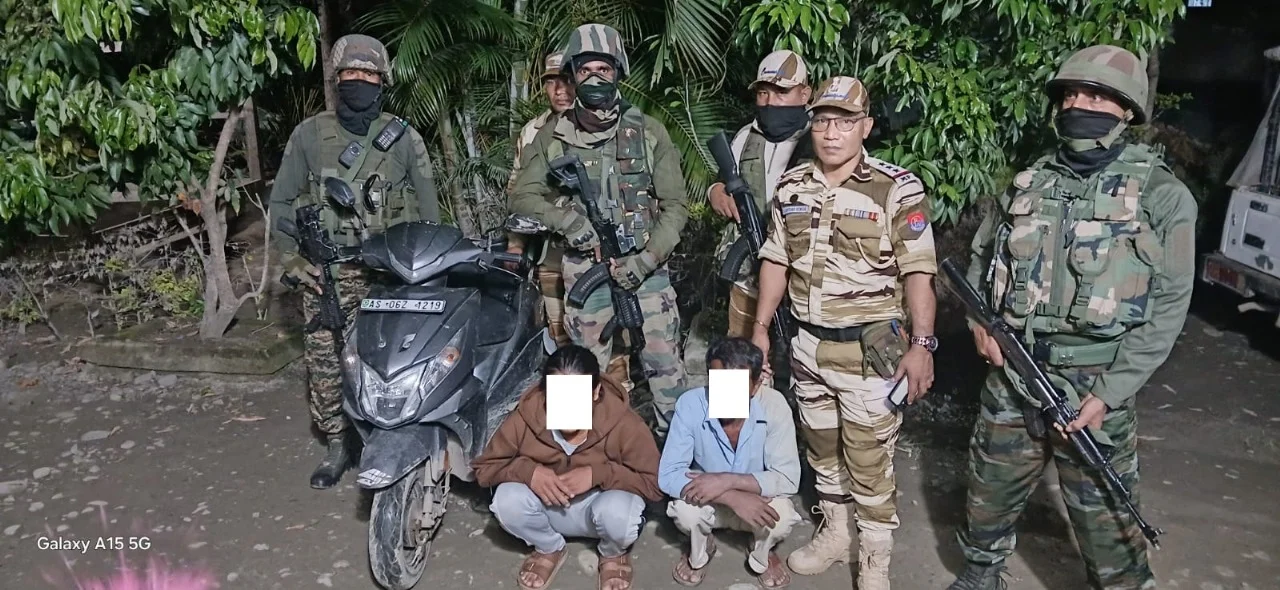“Manipur militant arrests juvenile”, “Prepak KCP arrests Imphal”, “Manipur security operations July 2025”
Short Summary of the News
Security forces in Manipur arrested five militants, including two juveniles, from two banned outfits in separate operations across Imphal East and Bishnupur districts. Three active cadres from the Prepak outfit were detained in Keirao Khunou, while two members of the Kangleipak Communist Party (PWG)—linked to extortion—were arrested in Keibi Heikak Mapan Awang Leikai. In a related sweep in Bishnupur’s Santipur area, authorities recovered firearms, improvised explosives, ammunition, and communication devices. These actions come amid intensified search efforts following ethnic violence since May 2023 that resulted in over 260 deaths and mass displacement
An In-Depth Look at the Arrest of Five Militants in Manipur
1. How Did the Arrests Unfold?
Let’s break it down: in a coordinated effort across Imphal East and Bishnupur, law enforcement launched precision operations targeting members of banned militant groups. The first bust happened in Keirao Khunou, Imphal East, where three operatives from the outlawed Prepak faction were taken into custody. In a separate sweep, two cadres of the Kangleipak Communist Party (PWG) were nabbed at Keibi Heikak Mapan Awang Leikai while they attempted to collect illicit funds linked to extortion . Notably, two of the arrested Prepak members were juveniles, highlighting a concerning trend of youth involvement in insurgency .
2. What Weapons and Gear Were Seized?
It wasn’t just suspects that security forces confiscated. In Santipur, Nepali Basti (Bishnupur), they recovered a stash of military-grade gear: two rifles, two empty magazines, two improvised mortars, and several mobile phones—all linked to operational planning and execution of militant activities . This haul underscores how well-armed these groups remain despite increased crackdowns.
3. Why Now? What Escalated These Operations?
The arrests are part of an escalated crackdown following violent ethnic clashes since May 2023, which have left over 260 dead and displaced thousands. The Central and state governments have ramped up anti-insurgency efforts under President’s Rule, declared on February 13, 2025, as peace talks and ethnic stability efforts languish
4. The Juvenile Factor: A Disturbing Trend
It’s alarming: minors being recruited into armed conflict. Two juveniles were among those arrested and will face legal processes under the Juvenile Justice Act, which protects minors through rehabilitation rather than punishment . This points to militant groups exploiting young, vulnerable individuals—an issue we can’t ignore.
FAQs
1. What laws govern the arrest of juveniles involved in militancy in India?
India’s Juvenile Justice Act focuses on rehabilitation over punishment, mandating separate legal processes, remand homes, and age-specific counseling.
2. Who are the Prepak and Kangleipak Communist Party (PWG)?
Both militant groups are banned in India. Prepak promotes ethnic separatism, while KCP (PWG) is linked to extortion and violence, especially in rural areas.
3. How has President’s Rule impacted security in Manipur?
Imposing central rule in February 2025 enabled coordinated military-led operations and intelligence sharing, reducing militant activity but also raising civil oversight concerns.
4. What do these arrests mean for civilians in conflict zones?
Arrests could make areas safer, but large-scale operations may also disrupt daily life. Balanced communication is key to maintain public trust.
5. Can militant recruitment among youth be stopped?
Yes—but it needs holistic strategies: education, social programs, community engagement, along with strict security enforcement to deter criminal influence.

